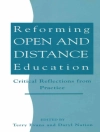Franz Neumann was a member of a generation that saw the end of the Kaiserreich and the beginnings of a democratic republic carried by the labor movement. In Neumann’s case, this involved a practical and professional commitment, first, to the trade union movement and, second, to the Social Democratic Party that gave it political articulation. For Neumann, to be a labor lawyer in the sense developed by his mentor, Hugo Sinzheimer, was to engage in a project to displace the law of property as the basic frame of human relations. The defeat of Weimar and the years of exile called many things into question for Neumann, but not the conjunction between a practical democratic project to establish social rights and an effort to find a rational strategy to explain the failures, and to orient a new course of conduct.
‘Learning from Franz Neumann’ pays special attention to Neumann’s efforts to break down the conventional divide between political theory and the empirical discipline of political science. Neumann was a remarkably effective teacher in the last years of his life, but he was also a gifted learner, whose negotiations with a series of forceful thinkers enabled him to work toward a promising intellectual strategy in political thinking.
Tabela de Conteúdo
Contents; I. The Challenge of Franz L. Neumann; II. Social Constitution, Social Power, and Responsibility: Neumann and Labor Advocacy; III. Power, Resistance, and Constitutions; IV. Franz Neumann’s Commemoration of Exile; V. After Weimar: The First Exile; VI. Neumann’s Second Exile: Negotiating the Politics of Research; VII. No Happy End: Unprofitable Negotiations; VIII. Behemoth: Wars Can Be Lost; IX. Franz Neumann in Washington: The Political Intellectual at War; X. Franz Neumann in the University: La guerre est finie; XI. The Legacy: Four Studies; Conclusion; Index.
Sobre o autor
David Kettler immigrated to the United States in 1940. Following an advanced education in political theory at Columbia University, his long academic career has been divided among Ohio State, Trent University and Bard College. He has published 18 books as author or editor and many articles and chapters focusing on problems arising from the relations between intellectuals and the political sphere.
Thomas Wheatland, who received his BA from Brown University and his MA and Ph D from Boston College in German intellectual history, is associate professor of history at Assumption College in Worcester, USA. The author of The Frankfurt School in Exile (2009), he has also written numerous articles and book chapters on critical theory and its history, the exiles from Central Europe during the Second World War and the transatlantic history of social thought in the twentieth century.












